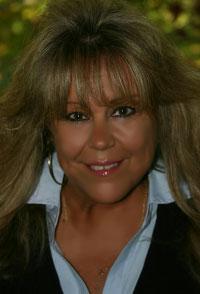A great deal has been written about the millennial meeting planner over the past few years. They have been described as a group that is very loyal, that seeks out the different and unexpected, is technically astute and loves a great value. What makes them different than other types of meeting planners is that they also need to be up-to-date and knowledgeable about the various compliance rules, regulations and laws that dictate how a medical meeting should be run to meet compliance standards.
This makes it natural for millennial medical meeting planners to be a unique breed, out of necessity in most cases. A thorough knowledge and understanding of the various medical meeting compliance issues are vital to success, but the key here is understanding how compliance rules, codes and laws (federal, state and global) fit within their company’s internal rules and compliance views.
Pat Schaumann, senior director of compliance at Maritz and a member of the MPI-MD Advisory Council, refers to this as “having to answer to many masters.” It’s a tough job, sometimes ambiguous and many times frustrating. This all could explain why there seems to be a shortage of qualified medical meeting planners out there.
Recent Events Industry Council (EIC) survey findings found that 1.9 million U.S. meetings were held in 2016. These meetings were attended by more than 250 million people, representing a 10 percent growth relative to 2012. That is big business. And the biggest segment of the meeting industry is healthcare meetings.
As healthcare professionals (HCPs) continue to be harder to reach at their practices for a variety of reasons, face-to-face meetings and events continue to be an extremely valuable way to offer education. It should be no surprise that pharmaceutical, medical device and biotech companies continue to explore ways to get in front of HCPs. No longer can you visit a physician and his staff and spoil them and make them feel special by bringing a nice lunch with some welcome gifts, if you are not reporting the transfer of value (TOV). And face-to-face meetings have become even more valuable for healthcare companies to reach, educate and connect with HCPs.
Related Article: How Event Organizers Are Implementing Millennial-Focused Programs
“In this industry education is vital. Staying up-to-date on industry issues can mean the difference between having a successfully run and compliant program or potentially putting your company in danger of being fined,” says Chelsea Rowe, director of events for Colorado Technical University and a member of the MPI-MD Advisory Council. “One of the great attributes of the millennial generation is how connected they are using digital platforms. This gives them an edge when trying to find information, and when it comes to compliance, having access to reliable, up-to-date information is key.”
With the ever-changing compliance landscape getting seemingly more difficult as time goes on, transparency, reporting and accuracy is of utmost importance. Many millennials naturally demonstrate tendencies to find solutions to address these issues. Most millennials grew up immersed using all sorts of technologies, so there isn’t a big learning curve or tendency to shy away from these types of solutions.
It is important that millennial planners are comfortable with technology because these solutions often change just as fast as compliance rules. So working with a planner that stays current on new technologies and the companies that are driving successful solutions for medical meeting planners is another important aspect of their job.
“While compliance at first blush can seem to be straightforward, millennials need to implement solutions to address challenges,” Rowe says. “Flexibility is key as each healthcare company can have different internal rules, or be a member of PhRMA or many factors that could dictate how they must do business. Technology can play a big part in offering solutions to compliance issues.”
Millennial medical meeting planners are prone to working with vendors and suppliers in the meeting industry that “get it.” Suppliers that understand the constraints of working with a healthcare company to produce a meeting is vital, and an important part of a millennial medical meeting planner’s job is to convey that one size does not fit all.
Each healthcare company can be quite different and require different solutions. For instance, hoteliers that understand offering healthcare compliant menus or offer billing formats that meet the needs of the healthcare company will have the edge. Millennial meeting planners are not shy, and while flexible in some areas, they can’t be flexible in others. A law is a law is a law.
For the millennial medical meeting planner the complex transactions and the penalties of non-compliance are steep and can cost millions, which is so different from other industries. In addition to reporting requirements, medical speakers are required to meet standards and approvals. So while event marketing in other industries may fall short of success, medical meetings must follow rules and regulations, or stiff monetary penalties could be assessed.
One program that is helping millennial medical meeting planners is a one-day course offered by Meeting Professionals International in which planners can earn the Healthcare Meeting Compliance Certificate (HMCC) designation. This certificate program provides a wide understanding of medical meetings regulatory topics. It also affords those in the class an opportunity to share their issues and solutions with others in the room and learn about tools and resources to assist them back at the office.
Yes, millennial meeting planners are different. They have to be. They are challenged daily and tasked with a monumental job of applying the ever-changing rules of meeting compliance to their meetings, tracking and reporting, educating those they work with on their needs, staying up-to-date on compliance information and bringing best practices back to their companies. If you work with millennial medical meeting planner, be sure you take the time to say thank you!



